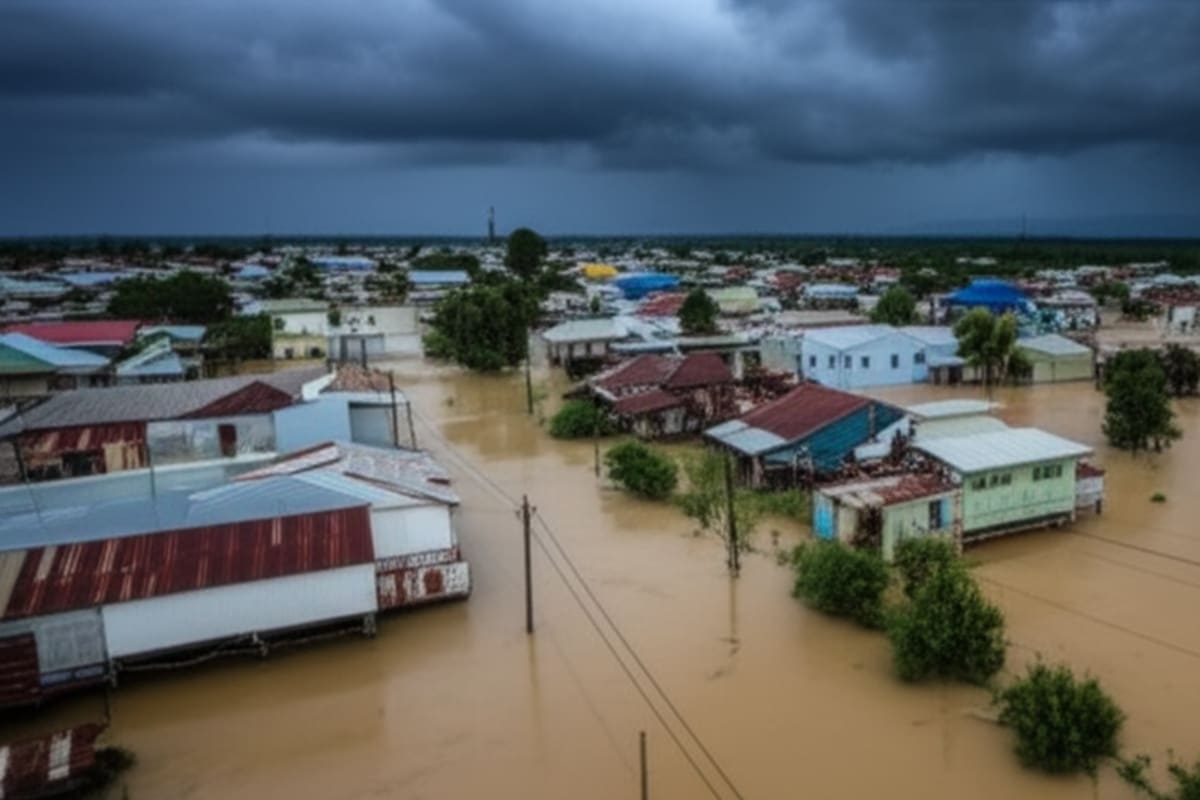Heavy Rains Flood Three Cambodian Provinces

Torrential downpours, unleashing their fury on Cambodia between August 29th and September 1st, 2025, have triggered widespread flooding across three provinces, exposing the region's acute vulnerability to the escalating impacts of climate change Preliminary reports from the National Committee for Disaster Management (NCDM) indicate that approximately 700 families, largely in rural communities, have been severely affected An estimated 200 hectares of crucial agricultural land are submerged, raising concerns about food security and economic stability for the affected populations While rescue operations are underway and assessments continue, the incident underscores the pressing need for enhanced disaster preparedness and proactive mitigation strategies throughout the nation Impact and Affected Areas: The affected provinces – identified as Kampong Thom, Siem Reap, and Banteay Meanchey – are situated within the low-lying Mekong River delta region This area is historically susceptible to seasonal flooding during the monsoon season, a pattern now demonstrably amplified by climate change
Background
The Mekong River, the lifeblood for millions in Southeast Asia, faces increasingly erratic weather patterns, swinging between devastating floods and prolonged droughts Experts at the Mekong River Commission (MRC) warn that these fluctuations are significantly impacting agricultural yields, food security, and the livelihoods of communities dependent on the river's resources Agricultural Impact: A Looming Food Security Crisis The agricultural sector, a cornerstone of the Cambodian economy, is particularly vulnerable
Rice cultivation, a staple crop, relies on predictable rainfall. The inundation of 200 hectares of farmland signifies a substantial loss of anticipated yields.
Economists predict potential food price inflation and increased economic hardship for already vulnerable farming communities The Cambodian Ministry of Agriculture, Forestry, and Fisheries is conducting a comprehensive assessment of the crop damage
This will inform the implementation of targeted agricultural relief programs and provide critical support to affected farmers, including the provision of seeds and fertilizers to facilitate replanting efforts Government Response and International Support: The Cambodian government, led by the NCDM, has initiated emergency response measures, deploying personnel and resources to the affected provinces Efforts are focused on providing essential aid to displaced families, including temporary shelter in schools and pagodas, distribution of food rations, access to clean drinking water, and urgent medical assistance to prevent the spread of waterborne diseases Prime Minister Hun Manet has pledged further resources to support the recovery efforts
The development of diversified livelihoods and alternative income sources for vulnerable populations is also crucial to reduce their dependence on climate-sensitive activities The situation highlights the critical importance of regional cooperation in addressing the transboundary challenges posed by climate change in Southeast Asia The Mekong River Commission (MRC) plays a pivotal role in facilitating dialogue, sharing best practices, coordinating disaster response efforts, and investing in joint research and development projects to enhance the region's collective resilience Regional cooperation is crucial for developing comprehensive and sustainable solutions that address the multifaceted challenges of climate change and its impact on livelihoods, economies, and the environment Experts advocate for the establishment of a regional early warning system for extreme weather events that provides timely and accurate information to all member states Conclusion This incident serves as a stark reminder of the urgent need for proactive and sustained measures to mitigate the risks of extreme weather events The scale of the flooding underscores the vulnerability of Cambodia and the wider Southeast Asian region to the devastating impacts of climate change It emphasizes the critical importance of robust investment in disaster preparedness, climate change adaptation, and regional cooperation Only through a multi-faceted approach, encompassing immediate relief efforts, long-term resilience strategies, and collaborative partnerships, can Cambodia and the region effectively navigate the increasing challenges posed by a changing climate and safeguard the well-being of their communities
